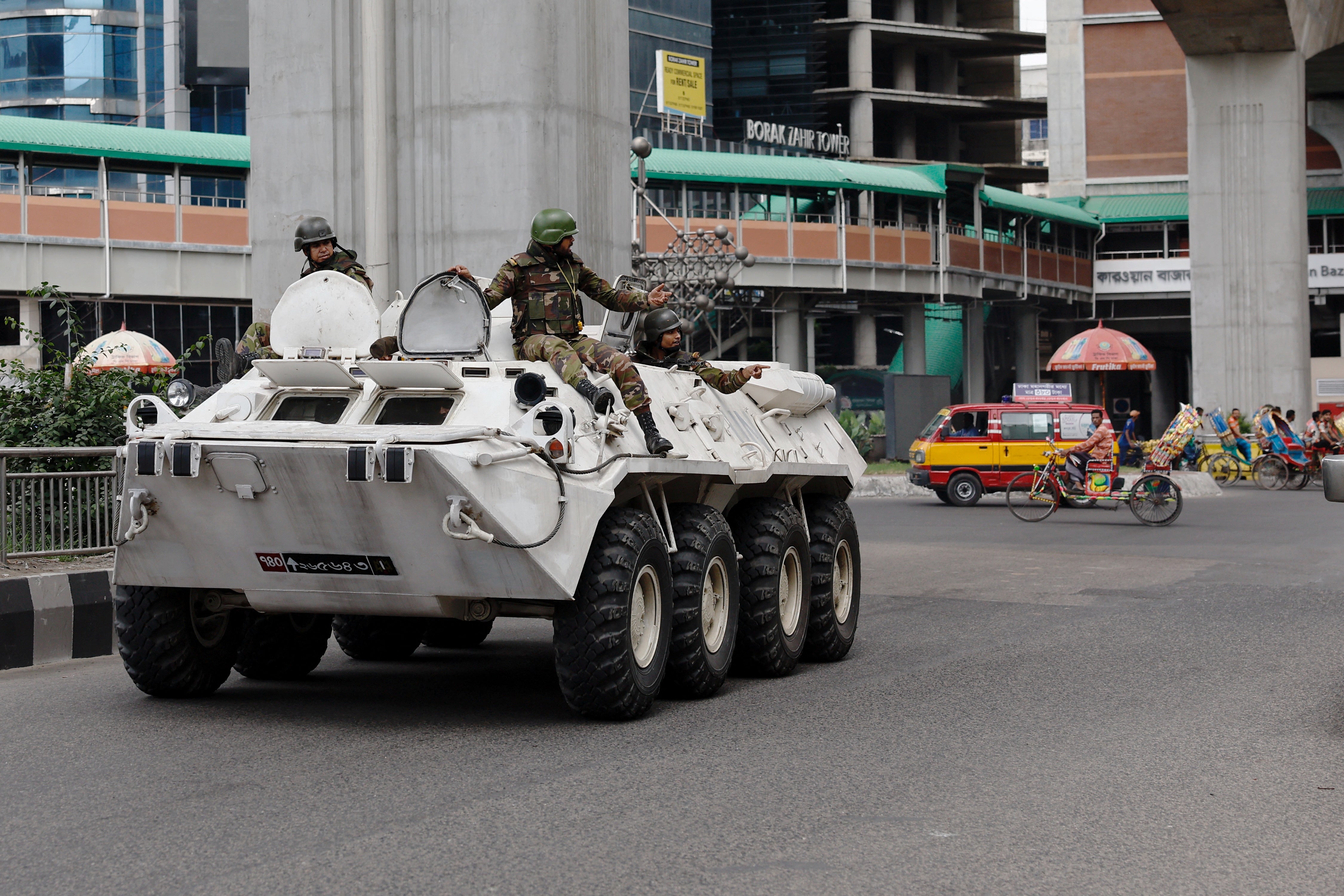Bangladesh’s top court scraps job quotas that sparked mass protests with 114 deaths
Decision means 93% of government jobs will be open to candidates on merit

Your support helps us to tell the story
From reproductive rights to climate change to Big Tech, The Independent is on the ground when the story is developing. Whether it's investigating the financials of Elon Musk's pro-Trump PAC or producing our latest documentary, 'The A Word', which shines a light on the American women fighting for reproductive rights, we know how important it is to parse out the facts from the messaging.
At such a critical moment in US history, we need reporters on the ground. Your donation allows us to keep sending journalists to speak to both sides of the story.
The Independent is trusted by Americans across the entire political spectrum. And unlike many other quality news outlets, we choose not to lock Americans out of our reporting and analysis with paywalls. We believe quality journalism should be available to everyone, paid for by those who can afford it.
Your support makes all the difference.Bangladesh’s Supreme Court has scrapped most of the quotas for government jobs that led to mass student protests and saw more than 114 people killed in the country’s worst unrest for a decade.
The protests have been steadily growing since last month after a lower court order reinstated a controversial quota system reserving up to 30 per cent of government jobs for relatives of veterans who fought in Bangladesh’s war of independence in 1971 against Pakistan.
The Sheikh Hasina government scrapped the quota system in 2018, but a court ordered that it be reinstated.
On Sunday, the Supreme Court dismissed that order and directed that 93 per cent of government jobs will be open to candidates on the basis of merit, without quotas.
The breakthrough has come after representatives from both sides met late on Friday to discuss a resolution. Law minister Anisul Huq had said the government was open to discussing their demands.
The court’s verdict came after the government extended a nationwide curfew until 3pm local time on Sunday and gave “shoot on sight” orders to quell protests.
The streets bore the look of a war zone as tanks and soldiers were deployed, with riot police using tear gas and rubber bullets to disperse protesters.
The protests were initially peaceful but exploded into violent clashes earlier this week after the student wing of the ruling Awami League party began counterprotests.
Despite increasingly stringent official measures to quell the unrest, sporadic clashes were reported in some parts of the capital Dhaka on Saturday. It was not immediately clear whether there were any casualties.
Bangladesh’s authorities have not released official figures for the number of those killed and injured, but local media reports on Saturday indicated that at least 114 people, mostly students, had been killed.
The country remains under a partial communications blackout due to the suspension of mobile data and text message services that began on Thursday.
The government declared public holidays on Sunday and Monday, saying the curfew would only be eased between 3pm to 5pm for people to run essential errands.
The crisis has emerged as the biggest challenge yet to Ms Hasina, who extended her 15-year tenure as prime minister with an election in January that was boycotted by the country’s main opposition groups, which accuse the government of a far-reaching and uncompromising crackdown on dissent.
The protests have shone a spotlight on the cracks in Bangladesh‘s governance and economy as well as the frustrations of the country’s youth at rising unemployment.
Protesters have argued that the quota system was discriminatory and benefitted supporters of Ms Hasina, whose political party led the independence movement. They demanded it be replaced with a merit-based system.
The government has spoken out in defence of quotas in the past, saying that veterans and their families deserve to be repaid for their sacrifices in the war against Pakistan.
Join our commenting forum
Join thought-provoking conversations, follow other Independent readers and see their replies
Comments